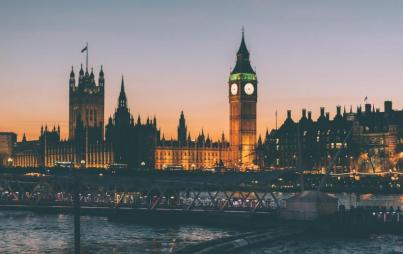
The United Kingdom is declassifying a slew of government documents from the past, and the pickings are juicy! Previously, we discussed grave Thatcher-administration doubts about the (ahem) competency of our very own Ronald Reagan. Today we bring you tales of government cover-up and confusion regarding one of the seminal events of World War I: The sinking of the Lusitania.
Here’s a quick review: In 1915, the RMS Lusitania—a British ocean liner—was sunk by a German U-boat as it ferried passengers from New York to Liverpool. More than 1,000 people died, including 124 (largely elite and well-connected) Americans. The incident helped swing popular opinion in the then-neutral U.S. against Germany as World War I waged on in Europe, and paved the way for America’s entry into the grisly conflict.
As it turns out, though, there's more to this story than we ever knew.
The Truth Comes Out
While the British press portrayed the sinking simply as an attack on unarmed civilians, Germany insisted the ship was carrying “large quantities of war materials,” which would make the Brits grossly negligent for endangering civilians. The British government, of course, vehemently denied this Kaiserly allegation.
Fast forward to 1982, when a salvage company made plans to explore the wreck of the infamous vessel. Documents reveal that various officials suddenly got hot under the collar. Also troubling: various state factions seemed unclear on the actual circumstances of the boat and its cargo.
Rumors had circulated for some time that war explosives on board had caused a massive secondary explosion after the torpedo hit, causing the ship to sink rapidly before most on board had a chance to escape.
Now, amid the possibility of more casualties, intra-governmental chaos ensued. One government faction revealed that the ship had at least 5,000 small arms ammunitions, unbeknownst to other officials (whoops!). The Ministry of Defence scoured all records of the ship’s cargo, but were unable to conclusively verify its contents.
Ultimately, the Ministry warned the divers that they could potentially be blown to high heaven by explosives—you know, the ones that officially didn’t exist—aboard the sunken ship.
Impact on U.S.-British Relations
This disclosure was not made lightly. One high-ranking government official said, “It cannot be denied that the sinking of the Lusitania did much to sway American opinion in favour of entering the war.” He also voiced concern that “[i]f it were now to come to light that there was after all some justification, however slight, for the torpedoing . . . relations with America could well suffer.”
Happily for the United Kingdom, it appears that all was forgiven on the American end (despite an American World War I casualty toll of more than 300,000), and the two countries held hands and skipped off merrily into the throes of the Cold War’s final decade, cross-Atlantic financial deregulation in the 1990s, enthusiastic forays into the Middle East after 9/11, and the financial crisis and post-recession climate we all now enjoy. Tally ho!
Image: ThinkStock






